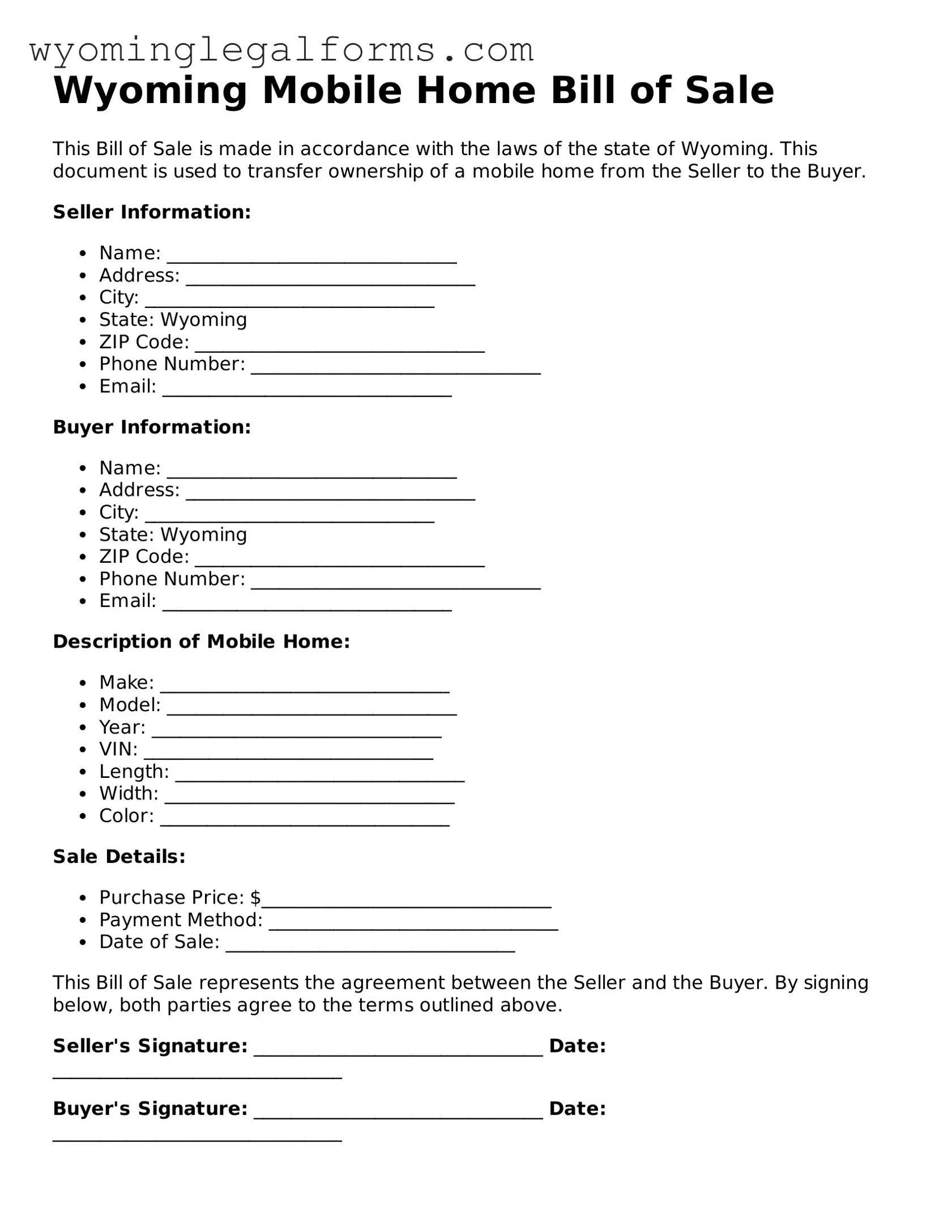When completing the Wyoming Mobile Home Bill of Sale form, individuals often make several common mistakes that can lead to complications later. One frequent error is failing to provide complete information about the mobile home. This includes details such as the make, model, year, and vehicle identification number (VIN). Omitting any of this information can create confusion regarding ownership.
Another mistake involves incorrect spelling of names. It is crucial to ensure that the names of both the buyer and seller are spelled correctly and match their identification documents. A simple typographical error can result in legal issues when transferring ownership.
Many individuals neglect to include the sale price of the mobile home. This information is essential not only for the transaction itself but also for tax purposes. Without a clear sale price, the transaction may be questioned by state authorities.
Some people fail to sign the form. Both the buyer and seller must sign the document to validate the sale. If either party neglects to do this, the bill of sale may not be legally binding.
Another common oversight is not dating the document. Including the date of the transaction is important for establishing when the sale occurred. This information can be critical in case of disputes or if legal action is needed in the future.
Additionally, individuals sometimes do not provide the correct address for the mobile home. The form should include the physical location where the mobile home is situated. This detail is necessary for proper identification and future reference.
People may also forget to include any warranties or conditions of the sale. If there are specific terms agreed upon, such as repairs or included appliances, these should be clearly stated in the bill of sale to avoid misunderstandings.
Another error is using outdated forms. It is essential to ensure that the most current version of the Wyoming Mobile Home Bill of Sale form is being used. Using an old form may lead to missing information or changes in regulations.
Some individuals overlook the need for a witness or notarization. Depending on local regulations, having a witness or notarizing the document may be required for the sale to be considered valid.
Lastly, failing to keep a copy of the completed bill of sale can create problems down the line. Both parties should retain a copy for their records to ensure they have proof of the transaction if needed in the future.

